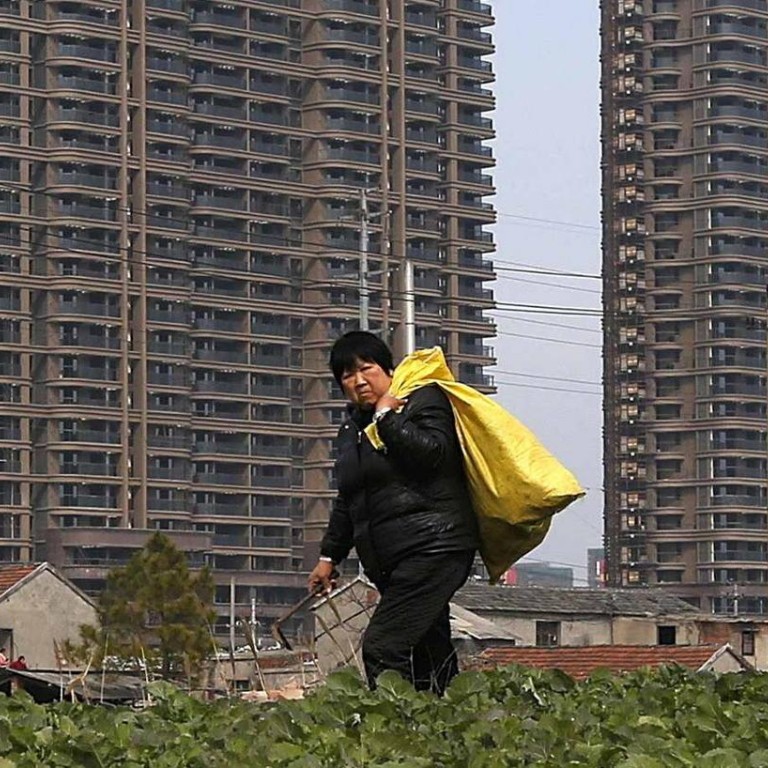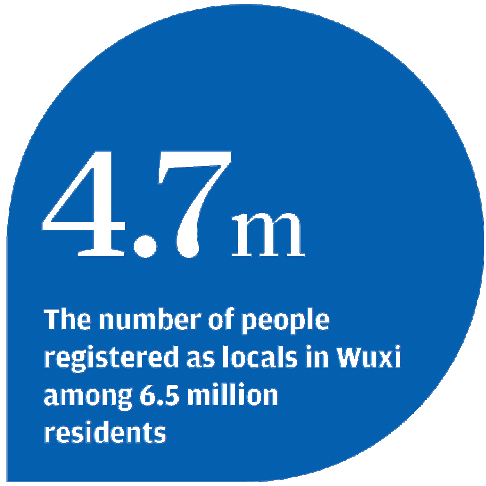
Wuxi takes lead in easing policy to boost home sector
Small cities may follow move to loosen residency registry but doubts grow over its effectiveness
Every time the mainland's property market cools, rumours about policy relaxation swirl. This year is no exception.

It is no surprise that the first rumours about relaxation of property policy have come from Wenzhou and Hangzhou, both in Zhejiang province.
Once an entrepreneurial boomtown, Wenzhou has been the only one among 70 major cities on the official radar screen in the past 21/2 years that has suffered year-on-year declines in home prices.
Hangzhou is the first where developers cut prices to speed up sales in February. Discounts are now deeper and wider and spreading to other cities.
While other cities are still testing the political waters, Wuxi in Jiangsu province has become the first to make a significant move, loosening its urban residency registry from Thursday this week to stimulate housing demand.
Wuxi has 6.5 million permanent residents, but only 4.7 million are registered as locals, who can enjoy the social safety net the city government provides.
"The policy bears no political risk and may well become a major choice for other small cities to revive local property markets," said China Real Estate Information Corp, a subsidiary of mainland consultancy E-House.
Over the weekend, prices of several residential properties on sale in Shanghai and Hangzhou dropped sharply, feeding speculation of a fresh round of price cuts by developers to boost sales, Reuters cited a report in the yesterday.
In Shanghai, a developer slashed average prices of a batch of homes on sale by 28 per cent to 36,000 yuan (HK$45,210) per square metre amid sluggish sales.
Separately, 12 projects in Hangzhou went on sale on Saturday, with developers wooing buyers with prices much lower than their counterparts in the city, the paper reported.
An official in Zhengzhou in Henan province has said the city could relax its policies if the housing market deteriorates, without offering any specific measures or time frame.
Analysts said a reported package of 10 measures by Fujian province, including halving the deed tax for buyers of first homes, might have exceeded what the top authorities were prepared to countenance and would be immediately cancelled once it was officially announced. An official at the provincial housing bureau has denied the report.
The top leaders have yet to spell out details about which cities can relax existing tightening measures, under what conditions and how they can gradually phase out home purchase restrictions.
The mainland has in the past killed a few premature attempts by local officials at easing property policy. The real estate sector is the largest driver of the economy, despite repeated government tightening campaigns to cool the market as record-high home prices have stoked citizens' anger.
Any sudden or steep correction in the property market will jeopardise the authorities' efforts to land the world's second-largest economy gently on a more sustainable track.
Local governments used land as collateral to borrow a total of 7.76 trillion yuan of debt at the end of last year, official data showed.
Meanwhile, analysts doubt whether the measure taken by Wuxi is strong enough to avert expectations of a further cooling of the market.
"We expect to see more third- and fourth-tier cities following the same route of indirectly relaxing housing purchase restrictions," said Edison Bian, research head for China property at UOB Kay Hian. "However, without credit loosening, the impact of local relaxation on housing markets could be rather limited."
WorldUnion, a mainland property consultancy, said the 1.8 million non-locals working in Wuxi mostly earned middle or low incomes and the recent tightening of mortgage loans by banks had made it even harder for them to afford a home.
It suggested Wuxi should instead try to rebuild its local industries, such as high-end garment and electronics manufacturing, so that the city could attract more outsiders with jobs offering higher incomes to revive the property market.

